 Two back-to-back sessions on forging new business models at Winter Institute last week, led by American Booksellers Association COO Len Vlahos, offered a variety of examples of new initiatives and businesses, some of them mentioned by booksellers in the audience. At the first session, panelists spoke of a range of programs that have helped business:
Two back-to-back sessions on forging new business models at Winter Institute last week, led by American Booksellers Association COO Len Vlahos, offered a variety of examples of new initiatives and businesses, some of them mentioned by booksellers in the audience. At the first session, panelists spoke of a range of programs that have helped business:
Annie Philbrick of Bank Square Books hosts an authors lunch series that draws customers from as far away as Boston into her Mystic, Conn., store.
Jane Streeter of the Bookcase in Nottinghamshire, England, spoke about two festivals run by a separate division of the store--one for books and one for book-related films--that draw thousands to the 2,000-population hamlet.
Nancy Simpson of the Book Vault in Oskaloosa, Iowa, talked about how seven indie merchants hold Diva Days and Diva Nights for consumers looking to share a pampering experience while visiting a variety of retailers. Simpson said she was inspired by shop local efforts spotlighted at past Winter Institutes. The Book Vault--which is housed in a converted bank building--has also begun renting its space for bridal showers and has fashioned a kitchen store-within-a-store.
As the session opened up, it turned out booksellers were doing all kinds of things to expand business, too. Brazos Bookstore in Houston, Texas, rents its space for private parties, mostly to alumni clubs, Jane Moser pointed out. "The bookstore is open for them," she said. "But they bring their own bartender and cleanup crew."
Chuck Robinson said that Village Books in Bellingham, Wash., is working on a marketing partnership with its local Apple computer dealer to build a kiosk in the bookstore to sell iPads.
Sarah Hedrick, owner of Iconoclast Books in Ketchum, Idaho, described how a group of retailers jointly took over a 1,500-sq.-ft. space in Haley in a co-op "of sorts" that allows them to have a presence closer to Sun Valley's ski slopes without having to run full-fledged stores there. For less than $300 per month rent, the seven retailers stock 125 square feet. Minus bookkeeping and other fees, Hedrick said it more than pays for itself. "I don't have to staff it," she said, "and I replace the books at night."
---
The second new business model session could have been called a tale of two booksellers--or, frogs, perhaps. Vlahos likened Roxanne Coady of R.J. Julia Booksellers, Madison, Conn., who has 21 years experience and has been a powerhouse in the business, to a frog sitting in a pot that slowly boils. (But happily she did not stay there!) Casey Coonerty Protti, he pointed out, was more like the frog thrown into a boiling pot when her father, Neal Coonerty, founder of Bookshop Santa Cruz, Santa Cruz, Calif., turned to his daughter to take over when he was elected to public office.
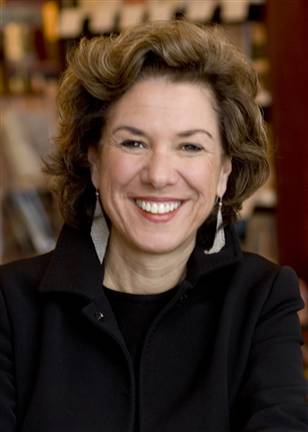 Four years ago Coady took an eight-week leave of absence--which she called a great luxury--to examine R.J. Julia's future. She sensed that the industry was in a state of "remediation." Coady took the time to meet with advisors--from publishers to B&N's Riggio brothers (who were very gracious, she said) to industry outsiders, including Ron Johnson of Target and Apple. Coady came away with three observations: people would be buying fewer books from booksellers like R.J. Julia, new formats were emerging that might leave booksellers out and adding a new store would not help the "operational efficiency" of her business.
Four years ago Coady took an eight-week leave of absence--which she called a great luxury--to examine R.J. Julia's future. She sensed that the industry was in a state of "remediation." Coady took the time to meet with advisors--from publishers to B&N's Riggio brothers (who were very gracious, she said) to industry outsiders, including Ron Johnson of Target and Apple. Coady came away with three observations: people would be buying fewer books from booksellers like R.J. Julia, new formats were emerging that might leave booksellers out and adding a new store would not help the "operational efficiency" of her business.
"The only thing we know how to do is put the right book into the right hand," said Coady. "So, we started 'Just the Right Book,' a book subscription service." A year later, the store continues to refine the program.
One of her conclusions: booksellers (herself included) need to evaluate their strengths and weaknesses continually. "When we don't do that, we end up sideways," she said.
When Protti took over the family business, the Harvard M.B.A. got right to work. "I met with every staff member to find out what their jobs were and to hear their ideas," she said. Then she began to do market surveys to assess a customer baseline. (All while having two kids.)
Protti discovered that Amazon, and not the Borders down the street, was Bookshop Santa Cruz's biggest rival. To counter Amazon, the store offered Ingram's direct-to-home service; searched for hard-to-find books; clarified what its website could offer, like shipping to the store to avoid Amazon shipping fees; and offered personalized recommendations.
"I realized I had to do an educational campaign about Amazon as much as I did about Borders," said Protti. In the end, acting on the finding that the average book buyer purchases four of every 10 books at indies, she asked the store's customers to take a "One More Book Pledge." That is, to pledge to buy a "fifth book" with them, still "letting" them buy half their books at Amazon or other places.
Coady called this approach brilliant. "You can't make people feel bad about things," she said. "Amazon works for them." But, as both store owners know, their customers want them to stay in business--and should be receptive to a little education.--Bridget Kinsella










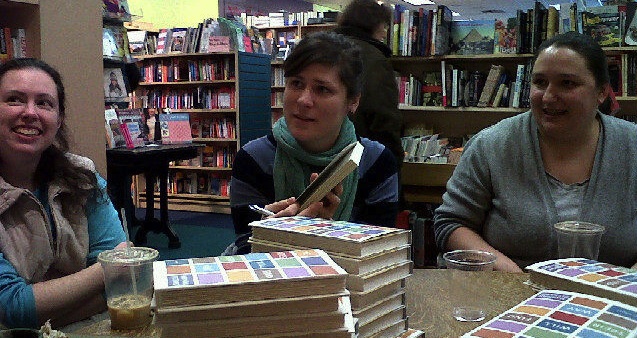
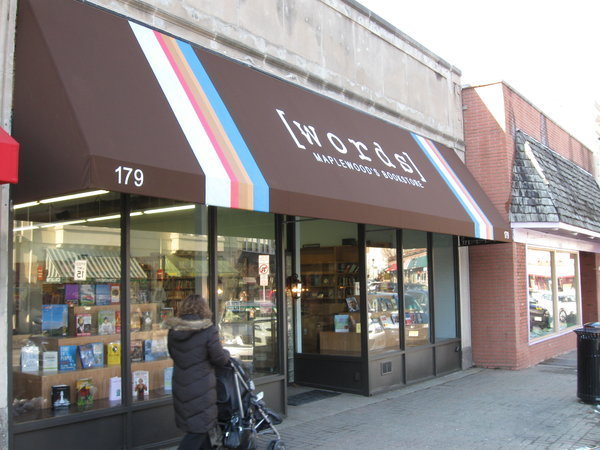 Congratulations to
Congratulations to 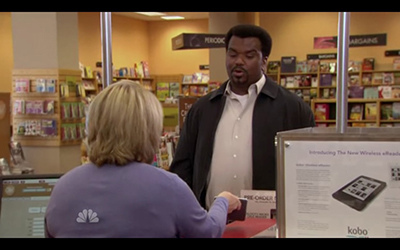 Reading
product placement. The Kobo e-reader made a guest appearance on last
week's episode of the NBC comedy series The Office. One of the
characters resolves to read more this year and "is introduced to the
Kobo on a trip to a bookstore. While his co-workers Dwight and Andy are
trying to fulfill their resolution to pick up women, Daryl speaks to a
bookstore clerk about the Kobo. Expressing his fear of e-readers (the
show is set in the offices of a paper company), Daryl is quickly sold on
the fact that the eReader can fit 10,000 books. He is seen later in the
episode reading it at the roller rink," the
Reading
product placement. The Kobo e-reader made a guest appearance on last
week's episode of the NBC comedy series The Office. One of the
characters resolves to read more this year and "is introduced to the
Kobo on a trip to a bookstore. While his co-workers Dwight and Andy are
trying to fulfill their resolution to pick up women, Daryl speaks to a
bookstore clerk about the Kobo. Expressing his fear of e-readers (the
show is set in the offices of a paper company), Daryl is quickly sold on
the fact that the eReader can fit 10,000 books. He is seen later in the
episode reading it at the roller rink," the  Two back-to-back sessions on forging new business models at Winter Institute last week, led by American Booksellers Association COO Len Vlahos, offered a variety of examples of new initiatives and businesses, some of them mentioned by booksellers in the audience. At the first session, panelists spoke of a range of programs that have helped business:
Two back-to-back sessions on forging new business models at Winter Institute last week, led by American Booksellers Association COO Len Vlahos, offered a variety of examples of new initiatives and businesses, some of them mentioned by booksellers in the audience. At the first session, panelists spoke of a range of programs that have helped business: Four years ago Coady took an eight-week leave of absence--which she called a great luxury--to examine R.J. Julia's future. She sensed that the industry was in a state of "remediation." Coady took the time to meet with advisors--from publishers to B&N's Riggio brothers (who were very gracious, she said) to industry outsiders, including Ron Johnson of Target and Apple. Coady came away with three observations: people would be buying fewer books from booksellers like R.J. Julia, new formats were emerging that might leave booksellers out and adding a new store would not help the "operational efficiency" of her business.
Four years ago Coady took an eight-week leave of absence--which she called a great luxury--to examine R.J. Julia's future. She sensed that the industry was in a state of "remediation." Coady took the time to meet with advisors--from publishers to B&N's Riggio brothers (who were very gracious, she said) to industry outsiders, including Ron Johnson of Target and Apple. Coady came away with three observations: people would be buying fewer books from booksellers like R.J. Julia, new formats were emerging that might leave booksellers out and adding a new store would not help the "operational efficiency" of her business.  Sony has hired John Sayles to adapt Girls Like Us: Carole King, Joni Mitchell, Carly Simon--and the Journey of a Generation by Sheila Weller. According to the
Sony has hired John Sayles to adapt Girls Like Us: Carole King, Joni Mitchell, Carly Simon--and the Journey of a Generation by Sheila Weller. According to the 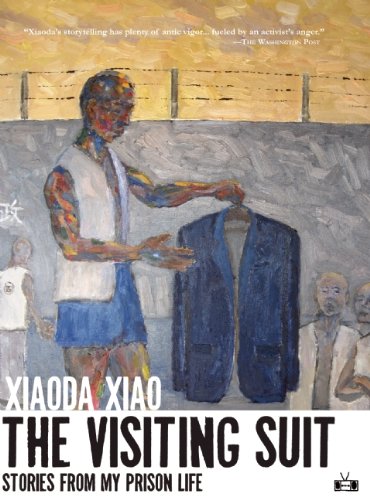 When he was a 20-year-old college student, Xiaoda Xiao (The Cave Man) was declared a counter-revolutionary for ripping a poster of Chairman Mao. Without a trial, he was sent to a prison on an island in Taihu Lake, where he labored in a stone quarry for seven years.
When he was a 20-year-old college student, Xiaoda Xiao (The Cave Man) was declared a counter-revolutionary for ripping a poster of Chairman Mao. Without a trial, he was sent to a prison on an island in Taihu Lake, where he labored in a stone quarry for seven years.